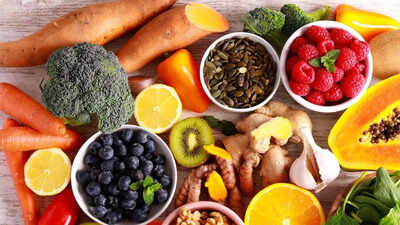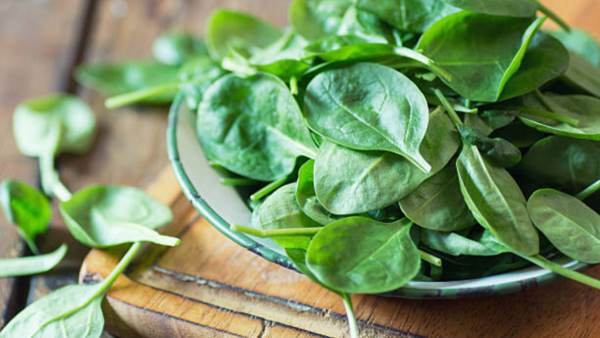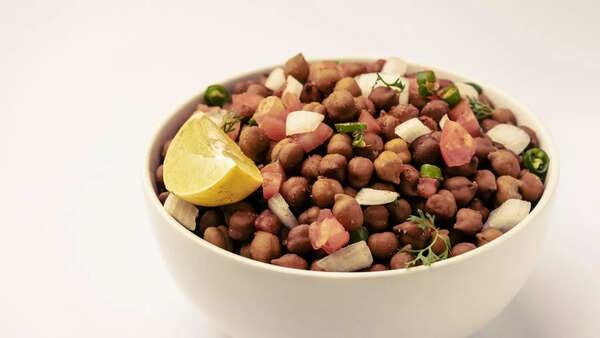ARTICLE AD BOX

Do you often feel drained and always feel low in energy? Then these are silent indicators of iron deficiency, which can often turn severe when left untreated. But why is it that women need more iron than men? Here’s all you need to know about iron, why women need it more and foods that are rich in iron.
Why is iron important?Iron is an essential mineral that supports the transport of oxygen in the blood, helps in energy production, and boosts immunity. However, women have significantly higher iron needs than men due to biological and hormonal factors. Iron deficiency is one of the most common nutritional problems in women,which often leads to fatigue, hair fall, mood swings, and even poor immunity.Monthly menstrual blood lossEvery month, women lose blood through menstruation, which naturally reduces iron levels in the body.
This monthly cycle places women at a higher risk of iron deficiency anemia. While men need about 8 mg of iron daily, women between the ages of 19 to 50 require nearly 18 mg per day to compensate for the blood loss.

PregnancyDuring pregnancy, a woman’s blood volume increases by nearly 50%, creating a greater demand for iron to support fetal growth, placenta development, and red blood cell production. Pregnant women need around 27 mg of iron daily, and insufficient intake may lead to complications like low birth weight and preterm delivery.
Breastfeeding and postpartum recoveryPostpartum women and breastfeeding mothers still require a steady intake of iron to replenish what was lost during childbirth and to continue supporting the baby’s development through breast milk. Low iron levels during this phase can lead to prolonged fatigue and poor immunity.

Summers can lead to mineral loss due to sweating, but black chickpeas can help replenish essential nutrients like iron, magnesium, and potassium. Iron boosts hemoglobin levels, preventing fatigue and dizziness, especially for women. Consuming black chickpeas with a vitamin C source like lemon enhances iron absorption significantly.Can’t eat your food without snapping a picture first?Join our Food Photography Contest and stand a chance to win exciting prizes!Click HERE for details.Join our WhatsApp Food Community to discover delicious recipes, enjoy fascinating food stories, and stay updated with the latest food news! Click here
Higher risk of iron deficiency in WomenGlobally, women are far more prone to iron deficiency than men, especially adolescent girls, menstruating women, and pregnant mothers.
Low iron can cause symptoms like dizziness, brittle nails, frequent infections, and pale skin, affecting everyday functioning and quality of life.Foods that are naturally rich in ironAdding iron-rich foods to your daily meals is essential, especially for women. Here are some easily available and nutritious options:Spinach and Leafy GreensSpinach is a classic iron source, offering around 6 mg of iron per cooked cup.
It’s also packed with vitamin A and fiber. To enhance iron absorption, add a squeeze of lemon or pair it with tomatoes.Red MeatLean cuts of beef, lamb, and especially liver are excellent sources of heme iron, which is absorbed more efficiently by the body. Just 100 grams of beef liver provides over 6 mg of iron.Lentils and ChickpeasOne cup of cooked lentils or chickpeas delivers around 3–4 mg of iron, making them great meat-free options.
Add them to curries, salads, or soups for a plant-based protein and iron boost.

Protein plays a direct role in neurotransmitter production. Foods like poultry, eggs, tofu, and dairy contain amino acids, the building blocks of dopamine and serotonin. For instance, the amino acid tyrosine (found in turkey, chicken, and dairy) helps increase dopamine levels, which in turn can enhance alertness and focus.
Dark ChocolateHigh-quality dark chocolate (with at least 70% cocoa) provides nearly 3 mg of iron per 28-gram serving. Enjoy it in moderation as a tasty and healthy snack.Nuts, SeedsPumpkin seeds, sesame seeds, almonds, and dried apricots all contain plant-based iron. A handful of these nutrient-dense snacks can offer between 2–4 mg of iron, plus healthy fats and fiber.Fortified Cereals and GrainsMany breakfast cereals and oats are fortified with iron and provide up to 100% of your daily needs in one serving. Always check the nutrition label and pair them with fruits rich in vitamin C.



.png)
.png)
.png)
















 3 hours ago
4
3 hours ago
4









 English (US) ·
English (US) ·